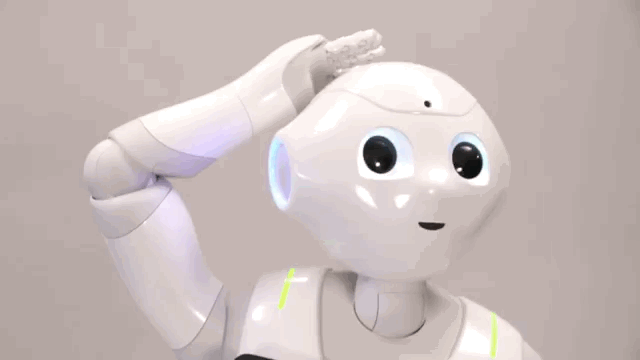In Japan, Pepper is a dear, adorable thing, but the robot is being reprogrammed to be sort of a jerk for use in America. While that cultural reimagining is telling in a small way, the greater takeaway from Will Knight’s smart Technology Review piece about this particular machine is that truly flexible and multifaceted robot assistants still need a lot of work. Of course, Weak AI can do a lot of good (and wreak a lot of havoc on the economy) all by itself. An excerpt:
Brian Scassellati, a professor at Yale University who studies how people and robots can interact, says significant progress has been made in the area in the last 10 years. “Human-robot interaction has really started to home in on the kinds of behaviors that give you that feeling of presence,” he says. “A lot of these are small, subtle things.” For example, Pepper can crudely read your emotions by using software that analyzes facial expressions. I found the robot to be pretty good at telling whether I was smiling or frowning.
However, Scassellati does not believe robots are ready to become constant companions or even effective salespeople. The robots that succeed “are going to be for very limited use,” he suggests. “They’re going to be for targeted use, and probably not with the general population.”
My short time with Pepper makes me think that targeting limited applications is a sensible move.•

